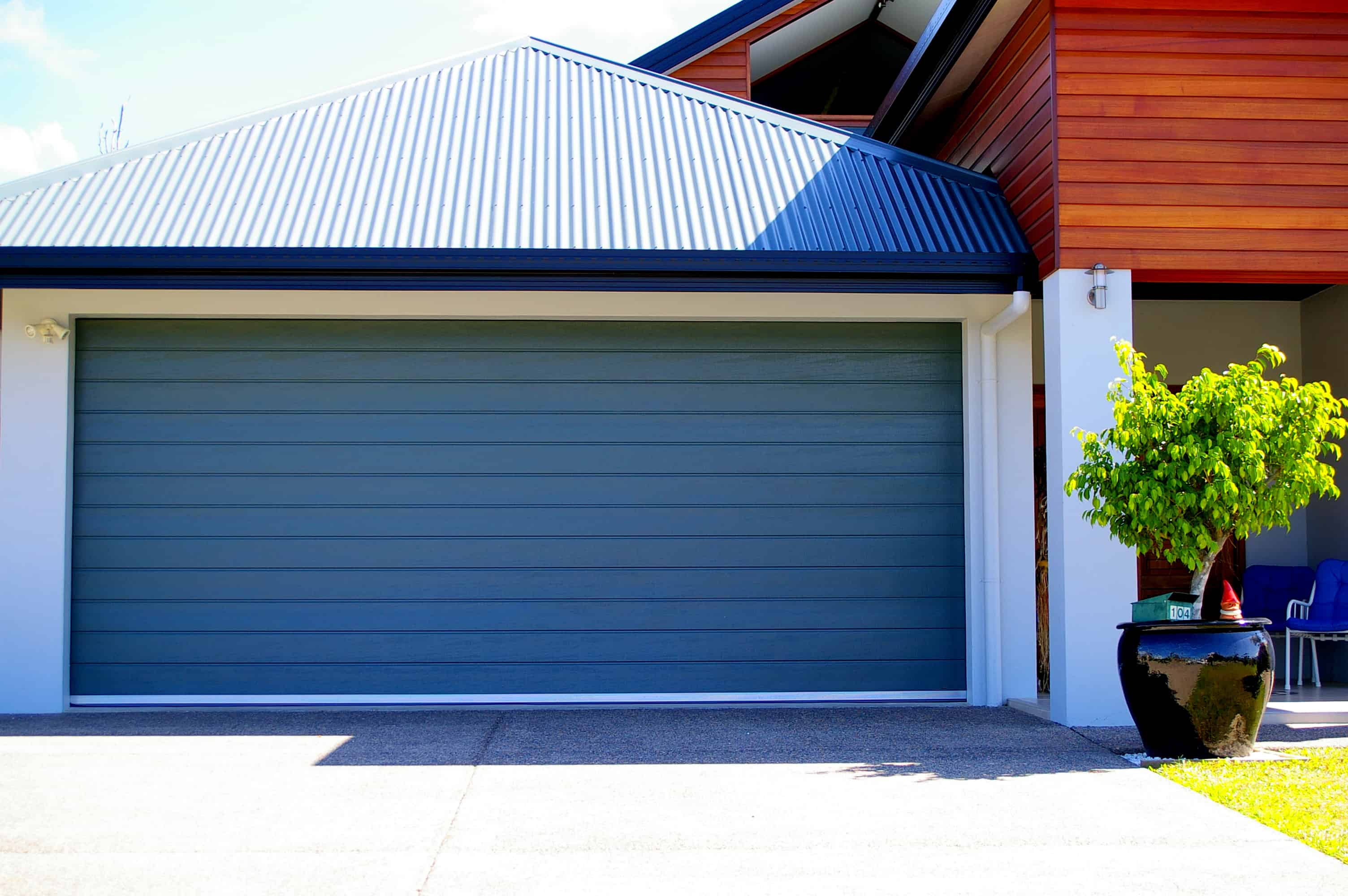Need a new garage door but stuck deciding on the right design for your home? We’ve got you covered. In this article, we’ll help you understand the age-old debate of sectional vs tilt garage doors, which is better? Through this information you can weigh up the pros and cons of both tilt and sectional garage doors, so you have the information you need to find the best option for your property. Read on to find out more.
Tilt vs sectional - what’s the difference?
Tilt garage doors: are a solid one-piece tilting panel with pivoting arms at both sides. These pivoting arms allow the tilt panel door to raise upward and outwards until it rests horizontally against the garage door header.
What are sectional garage doors? Sectional garage doors are an updated version of the tilt door, made of separate panels, attached by hinges. When opened, these roll on tracks to the underside of the ceiling, requiring less ground clearance.

Pros of Tilt Panel Garage Doors:
- Require Very Little Headroom
Some houses (such as the Queenslander) have limited head height for opening the garage door. In these cases the tilt panel garage door would be the ideal option as it requires minimal headroom. - Fewer moving parts means a longer lifespan
Tilt garage doors are made from a small number of components, exposing them to less wear and tear. As a result, you’re likely to get more life out of a single panel compared to a sectional garage door. - Wide range of styles available
Since they’re usually made using one sheet, tilt doors can be made from a broad mix of materials. No matter the design of your home, you’ll have an easy time matching a tilt door to your exterior decor.
If you need more help with understanding Tilt Garage Doors and their benefits then get in contact with our friendly team of experts today.
Cons of Tilt Garage Doors:
- They take up more room
As tilt doors don’t track underneath the ceiling, you’ll need to keep space clear in front of the garage door for easy opening. If you’re short on room, this could be an issue. - Not the best choice for storm-prone areas of Australia
If you live in a region that’s prone to cyclones, steer clear of tilt doors. Whilst built sturdily, they fare less well in harsh weather, and they can cause serious damage to property if they come off their hinges.
Pros of sectional garage doors:

- Visually appealing
If you’re planning on selling your property and are looking to raise the value through a highly cost effective solution, look no further than a sectional garage door. Boasting a contemporary design, sectional doors have become the industry standard for class and style. - Open and close silently
No more flinching as you reach for the handle. Unlike their panel counterparts, sectional garage doors open and close quietly.
3. Space-efficient option
If your garage has less width and height than usual, a sectional garage door is for you. Designed to require less ground space to open and close, sectional garage doors allow you to make the most of your space with no unnecessary exclusion zones required. Furthermore, when considering your external space, sectional garage doors open inwards, meaning you do not have any swinging mechanisms protruding from your property.
Cons of sectional garage doors:
- General Maintenance
More moving parts means more maintenance is required. This is a cost which will grow slowly moving forward however is necessary to ensure your equipment is in peak condition. - Tricky installation
Owing to its more complex mechanism, fitting a sectional garage door can be a difficult task that isn’t easily handled alone. As a result, a sectional garage door will require an expert to install. - Less ceiling space
Whilst they buy you more ground clearance, your sectional door’s mounted track is going to occupy more ceiling space than some might like.
Need more help picking the right garage door for you?
Contact our friendly knowledgeable team of experts now for a no-obligation discussion. If you still aren’t clear on the question of tilt vs sectional garage doors then we can help. If you have a question that we can’t answer then. We’ll be happy to point you in the right direction!
